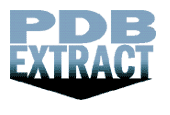DATA
DEPOSITION
2007 Deposition Statistics
In 2007, 8127 experimentally-determined structures were deposited
to the PDB archive.
The entries were processed by wwPDB teams at the RCSB PDB, MSD-EBI,
and PDBj. Of the structures deposited in 2007, 69% were deposited
with a release status of "hold until publication"; 20%
were released as soon as annotation of the entry was complete; and
11% were held until a particular date.
86% of these entries were determined by X-ray crystallographic methods;
13% were determined by NMR methods. 88% of these depositions were
deposited with experimental data.
During the same period of time, 7304 structures were released into
the archive.
ADITBeta
Available for Testing
 A
new version of ADIT developed to improve the accuracy and consistency
of data in the PDB is available for testing at deposit-beta.rcsb.org/adit. A
new version of ADIT developed to improve the accuracy and consistency
of data in the PDB is available for testing at deposit-beta.rcsb.org/adit.
The RCSB PDB staff ask that depositors use ADITBeta to deposit their
structures and provide any feedback at deposit@deposit.rcsb.org.
The following features have been added in this version:
• Format checking
– ADITBeta will indicate any format errors and provide suggestions
for solving them
• Geometry and stereochemistry checking
– Deposited structures will be automatically validated
• Sequence information
– ADITBeta will check for consistency between sequence and
coordinates
– This version provides improved organization of sequence
information (e.g., expression tags, mutations)
• Author and Title information
– Entering author, title, and citation information is easier
in ADITBeta
This version of the tool will become the default version of ADIT
early in 2008.
New Release
of pdb_extract Deposition Tool
 pdb_extract
is a program that minimizes errors and saves time during the deposition
process by extracting key details from the output files produced
by many X-ray crystallographic and NMR applications. The program
merges these data into macromolecular Crystallographic Information
File (mmCIF) data files that can be used with ADIT to perform validation
and to add any additional information for PDB deposition. pdb_extract
is a program that minimizes errors and saves time during the deposition
process by extracting key details from the output files produced
by many X-ray crystallographic and NMR applications. The program
merges these data into macromolecular Crystallographic Information
File (mmCIF) data files that can be used with ADIT to perform validation
and to add any additional information for PDB deposition.
Version V3.004 of pdb_extract has been released, and provides:
• Added support for several new programs, totaling 34 programs/packages
with hundreds of different formats
• Improved usability, with added functions and additional
error and warning messages
• Data files that follow the PDB Exchange Dictionary (PDBx)
v1.045 and the Protein Data Bank Contents Guide Version 3.1.
Complete details are available in the release notes at
sw-tools.rcsb.org/apps/PDB_EXTRACT/latestrelease-v3.004.html.
pdb_extract can be used via the web interface or a workstation program
downloadable from pdb-extract.rcsb.org.
Announcement:
Experimental Data Will Be Required for Depositions Beginning February
1, 2008
Effective February 1, 2008, structure
factor amplitudes/intensities (for crystal structures) and restraints
(for NMR structures) will be a mandatory requirement for PDB deposition.
These data must be deposited at a member site of the Worldwide Protein
Data Bank (www.wwpdb.org):
RCSB PDB (www.pdb.org),
MSD-EBI (www.ebi.ac.uk/msd),
PDBj (www.pdbj.org),
or BMRB (www.bmrb.wisc.edu).
Data may be released as soon as they have been processed and approved.
There is a one-year limit on the length of time a structure and
its experimental data can be put on hold, including structures that
are on hold until the associated paper is published (HPUB).
This policy was developed as a result of comments and recommendations
from the PDB user community, including the Commission on Biological
Macromolecules of the International Union of Crystallography and
the NMR Task Force, and has been endorsed by the wwPDB Advisory
Committee.
Structure
Deposition Checklist
It is recommended that depositors have the following items on hand
when depositing a structure:
• Contact authors’ names (including the Principle Investigator),
e-mail addresses, postal addresses, phone and fax numbers
• Title of the deposited structure and any relevant keywords
• Citation information: authors’ names, titles, and
journal details if these are available
• Macromolecule names
• Biological assembly information
• Ligand names and chemical diagrams
• Sequence and chain ID for each macromolecule, including
His-tags® or cloning artifacts that were not cleaved, and any residues
not visible due to disorder
• Source information: scientific names for source organisms,
expression systems, or details about synthetically produced molecules
More detailed checklists specific to X-ray, NMR, and electron microscopy
(EM) depositions are available from deposit.pdb.org.
|

 A
new version of ADIT developed to improve the accuracy and consistency
of data in the PDB is available for testing at
A
new version of ADIT developed to improve the accuracy and consistency
of data in the PDB is available for testing at  pdb_extract
is a program that minimizes errors and saves time during the deposition
process by extracting key details from the output files produced
by many X-ray crystallographic and NMR applications. The program
merges these data into macromolecular Crystallographic Information
File (mmCIF) data files that can be used with ADIT to perform validation
and to add any additional information for PDB deposition.
pdb_extract
is a program that minimizes errors and saves time during the deposition
process by extracting key details from the output files produced
by many X-ray crystallographic and NMR applications. The program
merges these data into macromolecular Crystallographic Information
File (mmCIF) data files that can be used with ADIT to perform validation
and to add any additional information for PDB deposition.